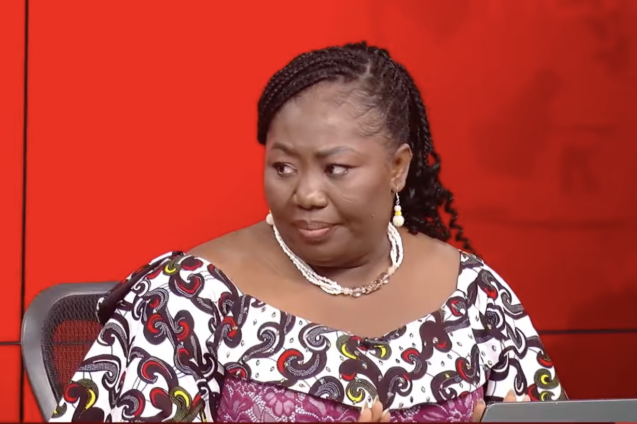A private legal practitioner and law lecturer, Clara Beeri Kasser-Tee, has raised critical questions about the Electoral Commission’s (EC) authority to declare electoral processes “illegal.”
Speaking on Joy News’ Newsfile on Monday, December 28, she argued that the EC’s assertion of illegality in disputed election results could exceed its mandate and require judicial determination.
Her comments come after the Supreme Court quashed results in the re-collation of votes in Tema Central, Ablekuma North, Techiman South, and Okaikwei Central in the 2024 parliamentary elections.
The apex court added that the order does not affect Ahafo Ano North and Nsawam Adoagyiri results.
According to the court, the trial judge violated the right to a hearing of the NDC Parliamentary Candidates when they applied to the High Court.
“Is it within the capacity of the EC to declare that there is an illegality? That, for me, is a question the courts must answer,” Kasser-Tee stated.
She explained that while administrative bodies like the EC can recognize errors, declaring something illegal is a legal judgment that must be supported by due process.
The law lecturer distinguished between errors and illegalities, stating that errors are factual acknowledgements, whereas illegalities require a legal basis.
“When you say you have made an error, you admit it as a matter of fact. But if you are saying something is illegal, it’s a question of law,” she explained.
Mrs Kasser-Tee further argued that procedural compliance is key in determining whether the EC acted within its mandate.
“If the procedure was followed, due process was adhered to, sometimes disputes might not even arise,” she noted, adding that transparency in decision-making fosters trust in institutions.
The law lecturer also stressed that allegations of illegality must be established through fair and impartial processes.
“Yes, it’s true that fraud vitiates everything, but allegations of fraud do not vitiate anything—they must be proven,” she said.
She questioned whether the EC had followed the required steps after receiving allegations of irregularities.
“The EC has a duty to act fairly and reasonably. What I didn’t see is how these allegations were addressed. Did the EC give all parties an opportunity to be heard?” she asked.
Mrs Kasser-Tee concluded by stressing the importance of fairness and consistency in the EC’s actions.
“When decisions are made fairly, people may not always agree, but they will respect them. The EC must ensure its processes are beyond reproach,” she said.
Latest Stories
-
Berekum Chelsea held at home against Dreams FC
1 minute -
Man City beats Leicester to end four games winless run
54 minutes -
Savinho scores as Man City beat Leicester City
59 minutes -
Obuasi Bitters supports widows in Obuasi with Christmas donations
1 hour -
Police in Wenchi gun down suspected armed robber after exchange of bullets
2 hours -
Groom dies at wedding ceremony in Akyem Anamase
2 hours -
KLM 737 slides off runway in Norway
3 hours -
Playback: The Law discussed transition law 101
3 hours -
ADB Board denies claims of irregular contract renewals, assures stakeholders of professionalism
3 hours -
Fiery plane crash kills 179 in worst airline disaster in South Korea
3 hours -
Re: Ablakwa blows whistle on ADB’s $750K ‘Midnight Contract’ amid transition tensions
4 hours -
Three migrants die attempting to cross Channel
5 hours -
Stonebwoy reunites with Samini
5 hours -
Police Sergeant alleges Deputy IGP ordered defiance of administration directives
6 hours -
Highlights of comedian Ebenezer Dwomoh’s 2024 exploits
6 hours

